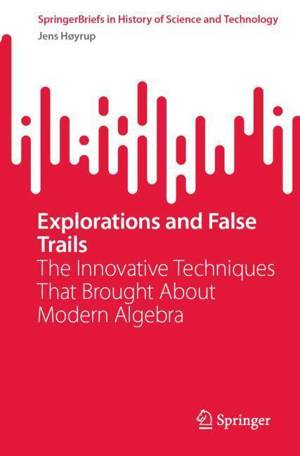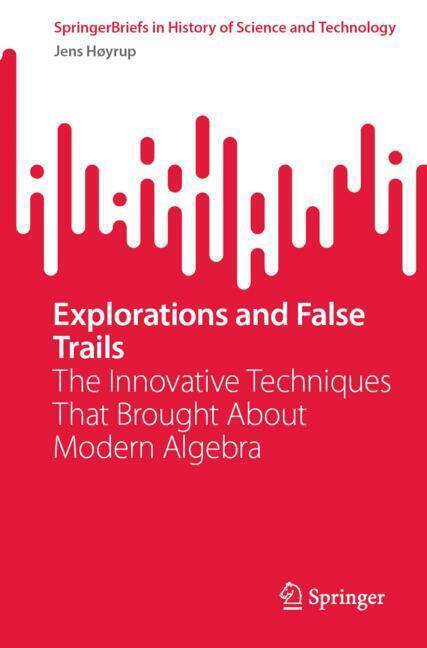
- Retrait gratuit dans votre magasin Club
- 7.000.000 titres dans notre catalogue
- Payer en toute sécurité
- Toujours un magasin près de chez vous
- Retrait gratuit dans votre magasin Club
- 7.000.0000 titres dans notre catalogue
- Payer en toute sécurité
- Toujours un magasin près de chez vous
Explorations and False Trails
The Innovative Techniques That Brought about Modern Algebra
Jens HøyrupDescription
This book provides a unique perspective on the history of European algebra up to the advent of Viète and Descartes. The standard version of this history is written on the basis of a narrow and misleading source basis: the Latin translations of al-Khwārizmī, Fibonacci's Liber abbaci, Luca Pacioli's Summa, Cardano's Ars magna--with neither Fibonacci nor Pacioli being read in detail. The existence of the Italian abacus and German cossic algebra is at most taken note of but they are not read, leading to the idea that Viète's and Descartes' use of genuine symbolism (not only abbreviations), many unknowns, and abstract coefficients seem to be miraculous leaps. This book traces the meandering development of all these techniques along with the mostly ignored but very important parenthesis function, by means of detailed readings of all pertinent sources, including the abacus and cossic algebra and French algebra from Chuquet to Gosselin. It argues for a necessary distinction between abbreviating glyphs and genuine symbols serving within a symbolic syntax, which allows it to trace the emergence of symbolic calculation. Characterization of the mathematical practice of the environment within which Viète and Descartes moved allows for an explanation of how these two figures did not even need to invent abstract coefficients but rather received them as a gift.
Spécifications
Parties prenantes
- Auteur(s) :
- Editeur:
Contenu
- Nombre de pages :
- 143
- Langue:
- Anglais
- Collection :
Caractéristiques
- EAN:
- 9783031481574
- Date de parution :
- 30-07-24
- Format:
- Livre broché
- Format numérique:
- Trade paperback (VS)
- Dimensions :
- 155 mm x 236 mm
- Poids :
- 272 g

Les avis
Nous publions uniquement les avis qui respectent les conditions requises. Consultez nos conditions pour les avis.






